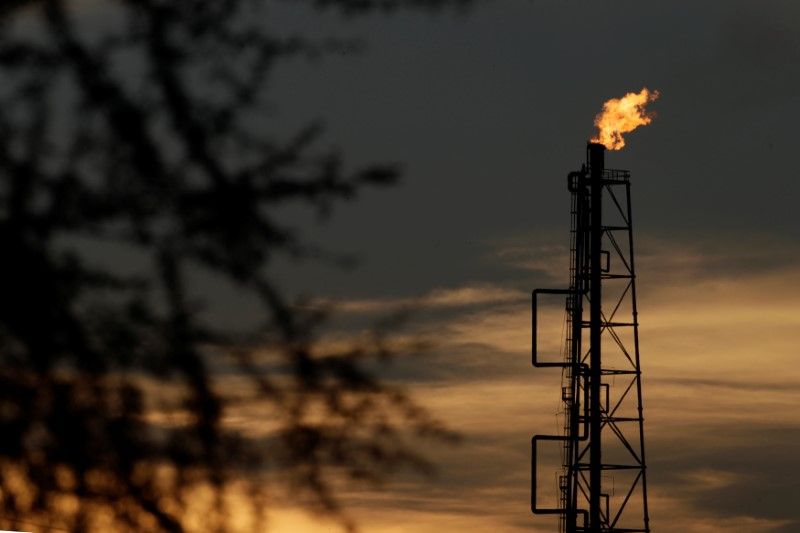Oil hits one-month high after U.S. missile strike in Syria

A flare stack of the refinery of Mexico’s national oil company Pemex is seen in Cadereyta.

The toughest U.S. action yet in Syria’s six-year-old civil war has ramped up geopolitical uncertainty in the Middle East. Oil, gold, foreign exchange, German and U.S. 10-year bonds reacted strongly to the attack. [MKTS/GLOB]
Brent crude futures LCOc1 were up 68 cents at $55.57 a barrel at 1012 GMT after reaching an intraday peak of $56.08, the highest since March 7, shortly after the missile strike was announced.
U.S. West Texas Intermediate (WTI) crude futures CLc1 were up 70 cents at $52.40 a barrel, having reached an intraday high of $52.94.
“Oil markets are back in bullish mode after the setback of the previous weeks. This news flow seems to bring geopolitical risks back on the radar,” said Frank Klumpp, oil analyst at Stuttgart, Germany-based Landesbank Baden-Wuerttemberg.
Although Syria has limited oil production, its location and alliances with big oil producers in the region mean any escalation of the conflict has the potential to increase supply-side fears.
Other analysts were more cautious, saying the conflict in Syria had no bearing on oil fundamentals and that the political risk premium could fall as quickly as it had appeared.
“This might just be a speculative move higher because there’s nothing fundamental that’s supporting this rise,” said Hamza Khan, head of commodities strategy at ING.
Oil markets remain oversupplied, even with efforts led by the Organization of the Petroleum Exporting Countries to cut supplies to prop up prices.
Russia, which is part of a deal between OPEC and non-OPEC oil producers struck late last year to rein in supplies, said on Friday it was too early to say whether a deal could be extended into the second half of the year.
The government has held discussions on a possible deal extension with domestic oil producers, Russian Energy Minister Alexander Novak said.
